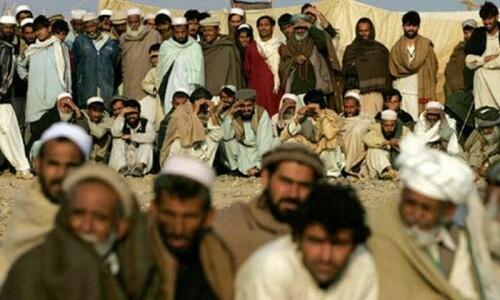Unilever Pakistan Limited is the largest Fast Moving Consumer Goods company and it also ranks as one of the biggest multinationals operating in the country.
The company made its first investment only a year after Pakistan’s attained independence in 1948. The growth over the years is mind-boggling.
Globally, Unilever operates in 100 countries and the company claims: “Unilever products are bought by 2bn people daily”. In Pakistan, the company has introduced over 30 brands in home care, personal care, foods and refreshments—Lux, Surf, Lipton, Knorr, Blue Band, Sunsilk, Walls and Fair and Lovely, to name a few.
The sales of Unilever Pakistan doubled from Rs31bn in 2008 to Rs61bn in 2013, in a span of five years. Net profit rose even faster to Rs6bn, from Rs2bn. And the company’s total assets surged by 100pc to Rs22bn at end 2013 from Rs11bn in 2008
Leafing through the financial accounts for 2013, one comes across stunning figures. Over just the last five years, the sales of Unilever Pakistan doubled from Rs31bn in 2008 to Rs61bn in 2013. Net profit rose even faster to Rs6bn, from Rs2bn. And the company’s total assets also increased by 100pc to Rs22bn at end 2013, from Rs11bn in 2008.
The directors follow a policy of distributing almost the entire profit in dividend. All of that explains why some shareholders were bitter when the Unilever Pakistan, in September last year, bought back stock held by the public, though at phenomenal price of Rs15,000 for share of par value of Rs50.
Following the buyback which was billed as the biggest share repurchase transaction in Pakistan’s corporate history, the parent Unilever Overseas Holdings Limited now commands 97.6pc stake in the company. But what may have been the shareholders’ loss of ownership, was the country’s gain in Foreign Direct Investment (FDI). “The $530m that the parent invested to acquire the minority shares in Unilever Pakistan represented two-thirds of all the FDI into Pakistan in financial year 2012-2013”, the company states. It also points out that in 2013, the company paid Rs23bn in taxes, which places it among the top 10 tax payers.
The Unilever brands reach 325,000 outlets, including many in deep rural through 350 distributors, representing the largest distribution network. In answer to a query about the products’ penetration in rural Pakistan, the Unilever Pakistan chairman and CEO Ehsan A Malik provided an interesting written answer: “Most FMCG sales are skewed 66:34 Urban: Rural, whereas the population split is the other way round”, says he adding: “Recognizing the potential of rural, we stepped up our distribution and sampling effort, targeting melas, harvest periods, creating excitement through sampling activities etc”. What follows is even more interesting: “We also hired nearly 2000 ladies from villages and trained them in basic beauty skills. We call them ‘Guddi Bajis’. They return home and establish salons where consumers can be trained on how to use our products, buy products and avail beauty treatments. On average a ‘Guddi Baji’ earns Rs10,000 a month enabling us to create livelihood.”
The parent also operates through an affiliate company. On April 24, 2007, Rafhan Best Foods Limited was renamed Unilever Pakistan Food Limited. The company produces products such as Energile, Knorr and Rafhan. “Unilever ‘s parent hold just over 75pc stake in the company and a local family owns 22pc”, the company answered in reply to a question about its ownership and plans of buyback — company is listed on the stock exchanges. “The parent has not communicated any plans to acquire more shares or seek the delisting of this business”, the company stated.
Looking ahead, the Unilever Pakistan chairman said the company believed in Pakistan ‘s potential. He explained that with 200m people, Pakistan was the fifth largest country in the world. “We have more people in the middle class as a percentage of population than India”, says he and adds: “In just the last five years an additional 25m people have joined the middle class of whom 7m are in the upper middle class. The latter is the combined population of Ireland and New Zealand”.And finally, the company proposes measures which could lead to promotion of FMCG business. Briefly they include: Putting an end to misuse of transit treaty due to which half the tea consumed in Pakistan is smuggled. Tea should be subjected to sales tax at 5pc on a non-VAT basis. Secondly, curb counterfeiting which is on the rise, especially in Punjab. The company also says that it has developed a proprietary system, PUREIT, which purifies water without electricity and gas. The company is also importing this system, but currently it is subject to import duty at 15pc and GST at 17pc. Unilever Pakistan proposes waiver of both, as the system helps save the country’s much-needed gas and power.
Published in Dawn, Economic & Business, May 19th, 2014
















































